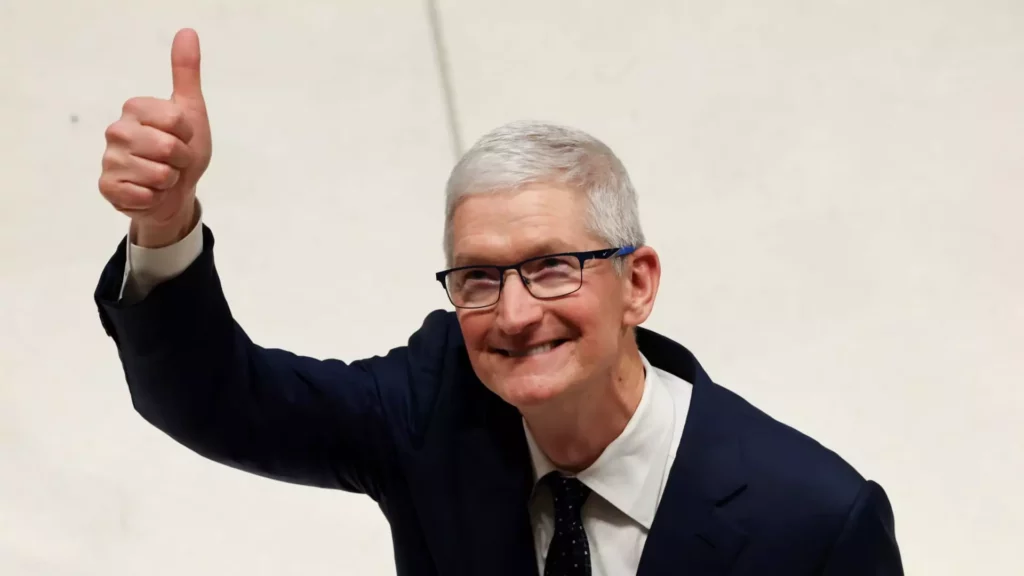In a bold move that has sent shockwaves across the tech and legal communities, Apple has successfully stood its ground against the U.K. government’s attempts to introduce backdoor access to encrypted data. The U.K.’s Investigatory Powers Tribunal’s ruling is not just a court decision; it represents a watershed moment in the ongoing struggle between personal privacy and governmental control. What does it signify when a corporation’s commitment to user privacy directly clashes with national security demands? The answer may well define the nature of digital citizenship in our contemporary society.
We’re living in an age where digital surveillance is becoming the norm rather than the exception. Governments worldwide have taken it upon themselves to battle issues like terrorism and cybercrime, often proposing sacrifices in individual freedoms. The requirement for tech companies to build “backdoors” undermines not only the privacy of users but also the very integrity of the digital ecosystem. In a time when our lives are intricately woven into online platforms, surrendering our security to satisfy government demands raises alarming ethical questions.
The Paradox of Safety vs. Freedom
The narrative pushed by authorities that encryption aids criminal behavior creates a disturbing paradox. At what cost do we prioritize safety over individual rights? The U.K. Investigatory Powers Act of 2016 facilitates law enforcement’s capability to demand access to encrypted information for national safety, perpetuating the misconception that such measures genuinely safeguard society. This line of reasoning may sound convincing, yet, history has shown that the misuse of power in the name of security can lead to the erosion of civil liberties.
Apple’s pushback against backdoor access reflects a broader trend of corporate responsibility and ethical governance in the tech industry. The removal of its Advanced Data Protection system for U.K. users showcases the stark reality of how regulatory pressure can force a company to reconsider its commitment to user security. However, this reaction also serves as a cautionary tale; it serves to remind us that when privacy becomes negotiable, consumers become pawns in a cynical game played between government and industry.
The Cost of Compliance: Consumer Safety in Jeopardy
As Apple endeavors to maintain user privacy amidst governmental encroachments, the ripple effects of regulatory demands resonate throughout the tech landscape. Each time a company capitulates, it sets off a chain reaction that diminishes the protective measures available to consumers. The bleak implications of such a reality are clear: as companies weaken their encryption systems in response to government demands, users are left exposed, perpetually vulnerable to data breaches and misuse.
We must confront the chilling reality that our very freedom to communicate privately, a right increasingly considered sacred, hangs in the balance as technology advances. The tech industry stands at a daunting crossroads. They must weigh the demands of governmental compliance against the ethical obligation to protect user data. Apple’s staunch refusal to facilitate backdoor access isn’t merely a triumph of corporate ethics; it represents a significant stand against the creeping normalization of surveillance in a digital age.
The Unyielding Struggle for Transparency
The U.K. tribunal’s refusal to allow the government’s appeal to be shrouded in secrecy serves as an affirmation of the importance of public accountability. Secretive legal processes only breed distrust and have no place in democratic societies. Transparency must be the cornerstone of any discourse around digital security and privacy. By standing up against clandestine judicial proceedings, the tribunal has paved the way for more open, honest dialogues on data rights and protections.
The consequences of this decision ripple beyond Apple, affecting countless stakeholders in the technology sector. It opens the door to a more robust public discourse about the nature of privacy in a rapidly evolving digital landscape. If anything, Apple’s landmark case challenges other tech companies to adopt similarly rigorous stances on encryption and user security. The ongoing tussle between corporations and government agencies is not merely a battle for data; it ultimately shapes our understanding of personal freedoms in this interconnected era.
Charting a Collaborative Path Ahead
As the tension continues to mount between governmental oversight and the necessity for privacy, the way forward must entail a balanced approach. This requires cooperative dialogue among tech companies, policymakers, and civil society to pave a path that prioritizes individual rights without entirely disregarding public safety. Finding that equilibrium may be difficult, but Apple’s steadfast stand may very well embolden others in the tech space to assert their commitment to user privacy.
In a digital landscape where trust is paramount, the significance of Apple’s recent victory extends beyond legal implications; it signals to a global audience that the quest for consumer privacy is far from over. The implications of these battles will reverberate for years to come, further highlighting the critical discussions surrounding the ethics of technology in an age of heightened surveillance and control.









Leave a Reply